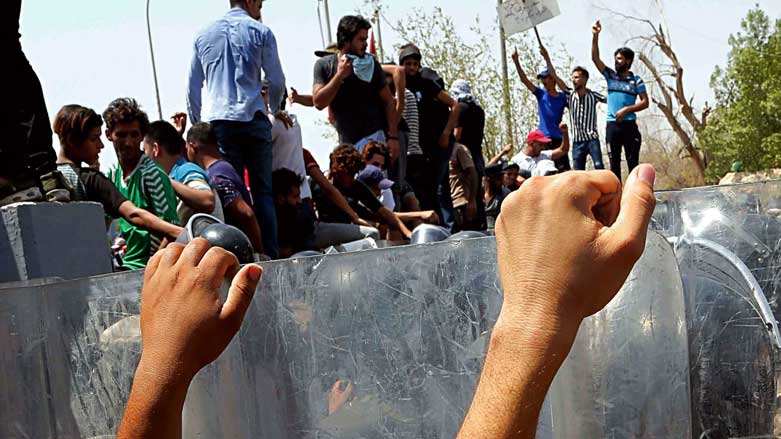Iraqi authorities obstruct media coverage of protests: Report

ERBIL (Kurdistan 24) – After nearly a month of sustained demonstrations against poor services and a low standard of living across southern and central Iraq, a leading international media rights group told authorities that they have "a duty to protect journalists and to not obstruct the freedom to inform."
Paris-based Reporters Without Borders (RSF), in a report released on Wednesday, documented several cases of arrests, threats, and other intimidation "by persons clearly linked to the security forces or pro-government militias" seeking to suppress reporting on the demonstrations. Multiple journalists who were detained were also forced to sign pledges to stop covering the protests.
“All of the incidents registered by RSF since the start of this wave of protests point to a clear desire by the Iraqi authorities to obstruct journalists’ work, which is both worrying and unacceptable,” said Sophie Anmuth, the head of RSF’s Middle East desk.
Iraq is ranked 160th out of 180 countries in RSF's 2018 World Press Freedom Index.
In one instance listed in the report, a correspondent and two cameramen "were stunned by tasers, insulted, threatened and detained for three hours" and another had his arm broken.
The day after a journalist in Najaf had been arrested and released, police threw a stun grenade at him "while he waited outside the governor’s office to interview the governor and was clearly identified as a journalist. He had to undergo an operation for the resulting injury to his ear."
Yet another journalist in Najaf said he had learned from a source close to the intelligence services that he was on a list of journalists circulating within the police.
RSF also critiqued the government's blocking of internet and social media, announced by some officials to have ended on Wednesday, and its claims that it was not doing it.
"After initially denying any role in the loss of internet services and blaming technical problems, the Iraqi government finally owned up. Communications minister Hassan al Rashed admitted at the start of this week that the government disconnected the Internet and then blocked social networks for security reasons. 'Demonstrators had been abusing them,' he said."
On Friday, Iraq's top Shia cleric Grand Ayatollah Ali al-Sistani warned Baghdad that the scope of the protests could increase in a way "they may regret" amid reports a new wave of demonstrations would resume.
“We have repeatedly advised senior government officials and political leaders to realize the great responsibility placed on them ... and to refrain from protecting the corrupt among their parties and friends,” Sistani said in a sermon recited by his aide in Karbala.
